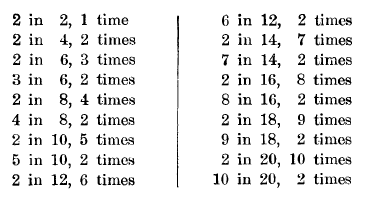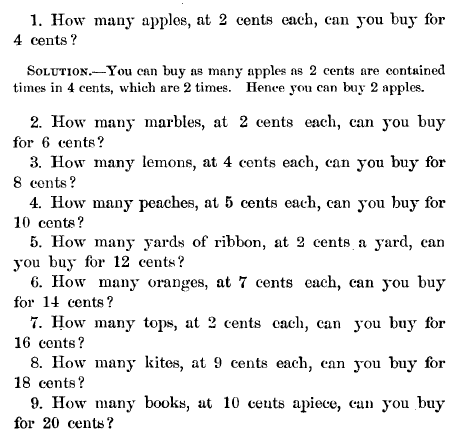 Ray's New Primary Arithmetic
Ray's New Primary Arithmetic
Ray's New Primary Arithmetic
Ray's New Primary Arithmetic



 Ray's New Primary Arithmetic
Ray's New Primary Arithmetic
Ray's New Primary Arithmetic
Ray's New Primary Arithmetic

Have children complete the steps below.
Have children practice until they perfectly master each task.
Using a 10x10 abacus to demonstrate multiplication and division operations may be helpful, although it is not required. Look for one with two colors of beads (5 and 5) on each row. Inexpensive ones can be found online on sites such Amazon for around $10.00.
STEP 1
Demonstrate division with various physical objects, marks on the board, and/or an abacus with counters (beads).
To teach 6 ÷ 2 and 6 ÷ 3, demonstrate with 6 objects of various types.
Represent the operations using dots or other symbols on the board. Draw the dots and ask:
If using an abacus, demonstrate by sliding the counters to illustrate:
STEP 2
Children divide objects they can't see, but can imagine (bears, mountains, trees).
Ask the following:
STEP 3
In this phase, do not mention objects. Children divide numbers directly.
Ask the following:
STEP 4
Write the problems listed in the table below on the board. Show the children the symbol for division ('/' or '÷').
Direct children to write and then recite each of these equations as follows:
STEP 5
Repeat steps 1-4 for each combination in the table below until the children master the tasks.

STEP 6
Assess mastery by reading aloud the listed word problems and having the children mentally compute and recite the solutions.
If children have difficulties, repeat the prior phases as needed and then reassess.
